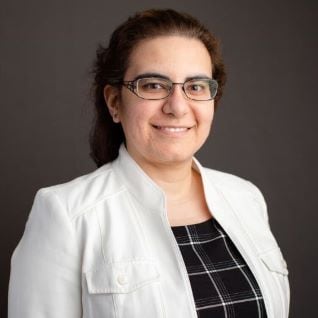/prod01/channel_2/media/mccms/content-assets/academics/residencies-and-fellowships/cardiovascular-pathology-fellowship-minnesota/meet-our-trainees/Rumilla-Kandelaria-14241081-202002030337.jpg)
Ande Rumilla, M.D.
Program Director
Assistant Professor of Laboratory Medicine & Pathology
Consultant in Laboratory Medicine & Pathology
/prod01/channel_2/media/mccms/content-assets/academics/residencies-and-fellowships/cardiovascular-pathology-fellowship-minnesota/meet-our-trainees/MGP-Meet-the-Faculty-1024-512-WF539804-0048.jpg)
The Department of Laboratory Medicine and Pathology at Mayo Clinic's campus in Rochester, Minnesota, is one of the world's largest and most sophisticated clinical laboratory and pathology departments. The department performs more than 20 million laboratory tests annually in support of Mayo Clinic practice and more than 4,000 Mayo Clinic Laboratories clients around the world.
Backed by the knowledge and expertise of more than 160 consultants and 3,000 employees in a wide range of professional roles, the department supports patient care across the continuum of care ranging from the patient's bedside to esoteric laboratory and pathology services. The department works collaboratively with colleagues in Arizona, Florida, and throughout the Mayo Clinic Health System.
The Division of Laboratory Genetics was established in 1992 with Cytogenetics, Molecular Genetics and Fertility Testing laboratories, adding the Biochemical Genetics Laboratory in 1996 and the Clinical Genome Sequencing Laboratory in 2014.
In January of 2017, the Cytogenetics Laboratory and Molecular Genetics Laboratory combined to form one laboratory now known as the Genomics Laboratory. To reflect this change, the Division of Laboratory Genetics has been renamed the Division of Laboratory Genetics and Genomics.
Since its formation, the Division of Laboratory Genetics has actively contributed to the study of genetic disease and the advancement of genetic testing and related technology. This effort is ultimately aimed at enhancing clinical patient care. Within each laboratory, board-certified directors and genetic counselors work closely with laboratory supervisors and technologists to ensure that accurate, reliable results are available in a timely manner.
More than 461,000 laboratory tests are performed on 318,000 specimens annually. Specimens are submitted to Mayo Clinic's laboratories from outside sources through Mayo Clinic Laboratories, Mayo Clinic in Jacksonville, Florida, and Mayo Clinic in Phoenix/Scottsdale, Arizona.
Ancillary services include an electron microscopy laboratory, a flow cytometry unit, molecular genetics and cytogenetics laboratories, and an immunohistochemistry laboratory. Several basic research laboratories are readily accessible.
You also will have access to Mayo Clinic's extensive tissue registry, which includes glass slides, paraffin blocks, gross specimens, frozen tissue, and tissue fixed for electron microscopy.
In addition to caring for patients in clinical practice, Mayo Clinic's faculty is committed to teaching and facilitating the growth of medical knowledge. Many of our faculty members have published and lectured extensively and are highly regarded in their fields.
You have direct access to these laboratory genetics specialists throughout the Molecular Genetic Pathology Fellowship.
Faculty advisers are available to provide comprehensive educational advice and personal support. You meet with your adviser periodically throughout the program to review your progress and career goals, and ensure that your educational needs are being met. Also, your adviser may serve as a contact point for introducing you and your family to Rochester, Minnesota, and the Mayo Clinic system.
Many prominent professors visit Mayo Clinic each year. They present their work during lectures, participate in hospital rounds, and have informal discussions with trainees. You are encouraged to take full advantage of these educational opportunities.
 Welcome to the Molecular Genetics Pathology Fellowship Program! Our mission is to prepare technically thoughtful and competent laboratory genetics and genomics consultants who are fully equipped to responsibly apply the full range of genetic testing platforms to meet the diverse needs of patients and their families.
Welcome to the Molecular Genetics Pathology Fellowship Program! Our mission is to prepare technically thoughtful and competent laboratory genetics and genomics consultants who are fully equipped to responsibly apply the full range of genetic testing platforms to meet the diverse needs of patients and their families.
Our program offers a dynamic and comprehensive training environment grounded in scientific rigor, clinical relevance, and professional growth. Through a carefully structured curriculum, hands-on rotations across all major areas of genetics, and close engagement with experienced faculty, our fellows are prepared to lead the evolving field of molecular genetic pathology.
In addition to technical training, we emphasize mentorship, scholarship, and leadership. Fellows meet regularly with me, receive individualized instruction during sign-out, present at national and regional conferences, and contribute to peer-reviewed publications. They also engage in leadership and quality improvement initiatives, lead journal clubs and case conferences, and collaborate with laboratory technologists on assay development. Fellows complete CAP inspection training, further preparing them for future laboratory directorship. We are proud to maintain a 100% board pass rate over the past five years, a reflection of our commitment to excellence and the strength of our training model.
Thank you for your interest in our fellowship! We look forward to supporting the next generation of molecular genetic pathologists as they become confident, ethical, and impactful leaders in laboratory medicine.
Ande Rumilla, M.D.
Program Director